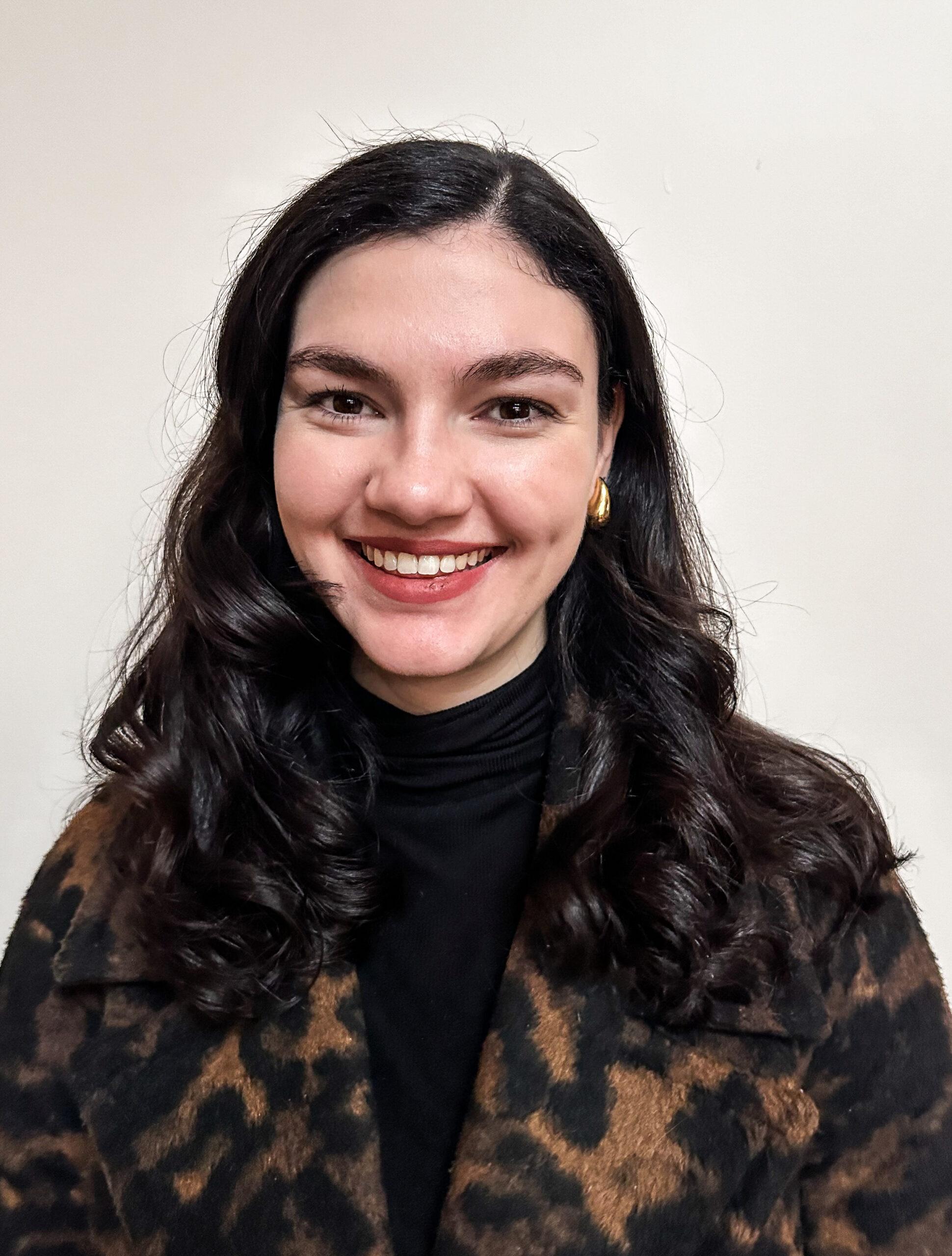Justine Palefsky grew up in a San Francisco studio apartment where the garage always housed someone different—friends, extended family, anyone who needed a place to stay in an expensive city. Her parents taught her that opening her home was a gift and that generosity came full circle.
Decades later, after studying cognitive neuroscience at Brown, solving puzzles at Bain & Company, and building high-trust customer experiences at Opendoor, Justine found herself organizing informal home swaps through email threads and Google Sheets. She wanted to spend weeks in Barcelona without paying San Francisco rent plus hotel costs, and her friends wanted the same thing.
Then came the cabin. Justine locked herself away for a week with her future co-founder, Tasneem Amina, whiteboarding business ideas and discussing their relationships with their mothers. That unconventional co-founder courtship led to Kindred, a home-swapping platform where 84% of dissatisfied hotel-goers can find something different: a movement built on reciprocity, not transactions. The business is built on members who host because it “feels good to give somebody a gift.”
Justine now sits down with Her Agenda to discuss her role in Kindred, how it came to life with her co-founder, Tasneem, and what’s in store as they both continue to listen to their customers’ needs and navigate the ever-evolving business world of travel and technology.
Her Agenda: Before founding Kindred, can you share a bit about your personal background and experiences that shaped your approach to travel and community?
Justine Palefsky: My career journey, taking a step back, partially starts with my life journey pre-career. I was raised in San Francisco.
I had two really progressive, big-hearted parents. We had a studio apartment in the garage, and there was always someone different living there. My parents raised me with a value system centered on the idea that it’s a huge gift to be able to offer our extended community a stay in a city as wonderful—but as expensive—as San Francisco.
In return, we had friends all over the country who hosted us in their guest rooms or on their couches when we traveled. This value system of opening your home, giving to your community, and trusting that the good energy you put out will come back around became an important part of my foundation.
I went to Brown [Universtiy] for college and studied cognitive neuroscience, which sometimes surprises people. I’ve always been both left-brained and right-brained. I’m an artist—I love to draw and paint—but I also love science and analysis.
Through my professional journey, I realized I didn’t have to choose. I could solve problems more effectively by combining an artist’s creativity with a scientist’s analytical approach. That made me more multidimensional.
After graduating, I joined Bain & Company, the consulting firm. I learned a ton there—it felt like solving puzzles for a living, which was fun—but I wanted to build something I believed in and was proud to add to the world. Living in San Francisco, surrounded by innovation and entrepreneurship, I caught the bug and joined the early stages of a property technology company called Opendoor.
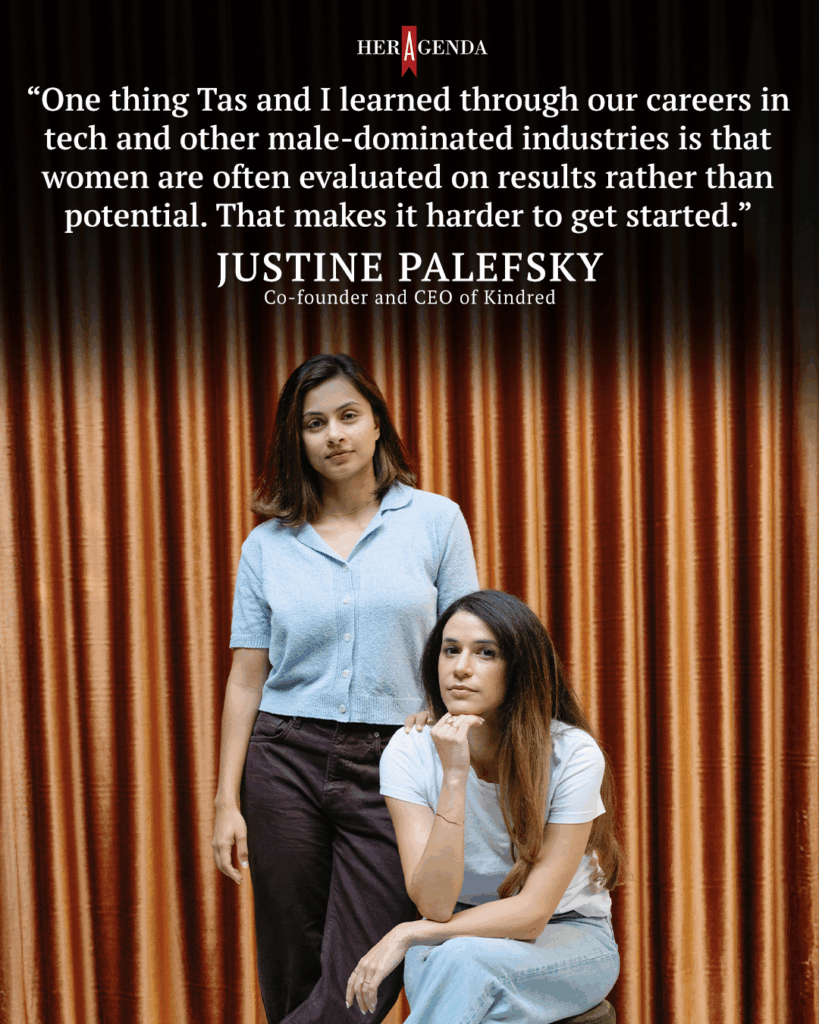
That’s where I met Tas, my co-founder. We didn’t work on the same team, but knew each other socially. At Opendoor, I helped build several high-trust, online-offline customer experiences, including a home trade-in product. Looking back, it’s funny—I’ve been working with swaps and trade-ins for a long time.
I stayed at Opendoor for about four years, then left to join a friend from Bain, Nikki, who was starting a construction technology company. Two intense, male-dominated industries, construction and tech, were colliding, and here was Nikki, six or seven months pregnant, saying, ‘Come with me, Justine. We’re going to transform this industry, and I need you by my side.’ I couldn’t say no.
I joined Homebound as part of the early team, helped launch the company, and supported it through Series B stages. That experience was pivotal for me—it helped me see that co-founding something myself was possible. Seeing Nikki, whose communication style and strengths were similar to mine, excel as a CEO helped me close that confidence gap. I’d always wanted to start a company, but I didn’t feel ready. Working with Nikki and seeing company growth at both Opendoor and Homebound made me realize I could do it. The only thing stopping me was taking the leap.
Her Agenda: So what made you take the leap?
Justine Palefsky: In early 2021, during the pandemic, I started thinking about the kinds of products I wanted to bring to the world and the problems I wanted to solve.
One challenge I’d been wrestling with for a few years was wanting to travel more. I love living in San Francisco. My family is here, but I also wanted to spend a few weeks in Barcelona or live in New York City for a month. It was just too expensive to pay rent in San Francisco while also booking more than a few days in a hotel or vacation rental.
I framed the problem: how can we make it possible to live a more travel-rich lifestyle, feeling like we have homes all over the world—in a way that’s affordable, accessible, and deeply human? That’s what we love about travel in the first place: embedding into a place and feeling like a local instead of a visitor.
I took that problem statement to the CEO of Opendoor, Eric Wu, and the CEO of Homebound, Nikki, and said, ‘I think I want to start a company. I don’t know exactly what it will look like, but I want to solve this problem.’
Eric said, ‘You’ve got to do it, and you’ve got to get with Tas. If you two worked together, you’d be unstoppable.’ I reconnected with Tas, and we had an amazing few months of co-founder dating. We locked ourselves in a cabin in the woods for a week, whiteboarded business ideas, talked about our families, our values, and even things like whether either of us had a criminal record. We got to know each other deeply and intentionally.
Coming out of that, we decided to be business partners and build something together. We left our full-time jobs and started working on what became Kindred in April 2021.
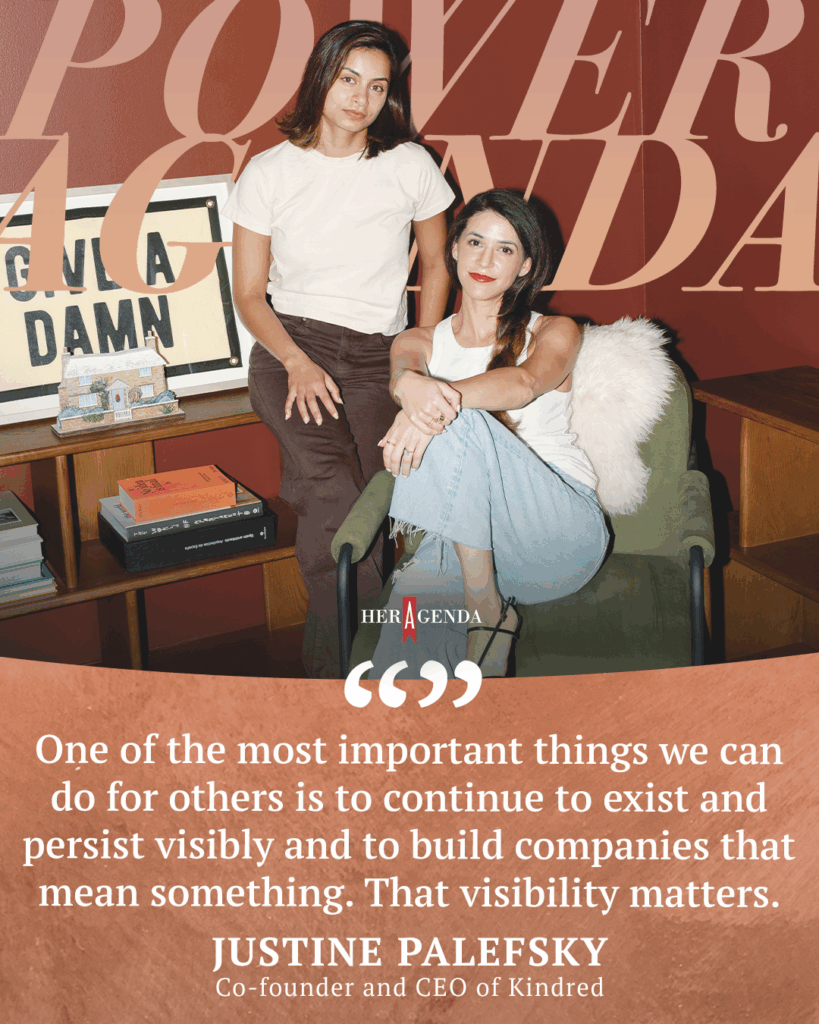
Her Agenda: How has Kindred evolved since its founding, and how are you building a new travel category focused on affordability and accessibility?
Justine Palefsky: We felt the world needed a third model in travel—a new option beyond hotels and vacation rentals, [which are] the primary choices today.
Hotels and vacation rentals simply aren’t affordable for most people. Rates are still extremely high, and flight costs have increased dramatically. It’s all very expensive, but people still want to travel. They continue to book hotels or vacation rentals, yet we found that many were disappointed with the experience.
At Kindred, we conducted studies that confirmed this. 84% of U.S. travelers who book hotels or short-term rentals reported dissatisfaction or pain points. Common complaints included places being too small, too expensive, having too many check-out tasks, or not being well-equipped. There’s this huge industry of people who want to travel but are unhappy with their options.
We wanted to create a new model for travel, one that’s more affordable, more human, and more empowering to locals rather than extractive.
The response to Kindred has been incredible. We’ve seen a real movement forming around home swapping as a third category in travel, gaining momentum because it makes aspirational travel accessible. It allows people to fit more adventures and memories into their precious time. It’s a way to travel rooted in generosity, reciprocity, and human connection rather than pure transaction, and so many people are craving that.
What I love about Kindred is that it goes beyond the transaction. Platforms like Airbnb have become transactional—they feel like just another kind of hotel. This doesn’t feel that way at all.
Members create rich household profiles in the app, sharing their interests and even introduction videos. Most connect over video chat before confirming a stay—they want to get to know each other as people. I’ve heard so many amazing stories of friendships that have formed through Kindred.
There’s something powerful about not exchanging cash. Money changes the dynamic—it turns a social contract into a financial one. When someone pays, the relationship shifts from peers to service provider and customer, and entitlement creeps in: “I’m paying $600 a night, I don’t have to take my shoes off,” or “I’ll play music as loud as I want.”
One of the beautiful things about the Kindred experience is that without a cash exchange between host and guest, it stays a pure, peer-to-peer relationship. It’s more affordable, yes, but it also protects the relationship and keeps the focus on community and connection instead of transaction or entitlement.

Her Agenda: What has been the most surprising insight or lesson you’ve learned about travelers needs since launching Kindred?
Justine Palefsky: One of the most exciting things to see is how many more people travel when they can stretch their dollar further. It really shows that the travel industry is being artificially suppressed by high costs. When those costs are relieved, people live their lives differently.
If you can take ten trips for the price of one, what would you do? Where would you go? We see people taking trips they never would have taken, or turning what would have been a two-day business trip into a three-week stay.
People are trying out living in new cities they’ve always been curious about—and sometimes they end up moving there full-time. We recently talked with a couple who did a long home swap in San Miguel de Allende, Mexico, fell in love with it, and decided to move there. There’s an immense desire to live across different cities, but we don’t fully see it reflected in the current travel market because it’s still so prohibitively expensive.
Another interesting lesson we’ve learned is that travel is the easy part—it’s easy to get someone excited about going on a great trip. Hosting is the harder part. We’ve learned a lot about what it takes to create the comfort and trust required to let someone into your real home.
Over 90% of Kindred homes are people’s primary residences—it’s where their belongings are, where they normally live. Hosting for the first time is a big leap of faith. We realized that beyond having comprehensive member protection programs—liability coverage and all the standard things, you also need to build a real human connection. Members need to feel known, and they need to know the person they’re hosting. That connection is what creates comfort for first-time hosts.
Authentic connection isn’t just valuable because it makes the experience more meaningful—it’s essential from a business perspective. It’s what brings inventory to market and helps people feel safe opening their homes.
Another surprising insight is that many members host more than they travel. You might expect people to host only when they have a specific trip planned, but a lot of members tell us they simply enjoy giving the gift of travel. Once they host for the first time, they realize how good it feels not to let their home sit empty, and to make someone else’s experience possible.
We call it the ‘generosity high.’ There’s something powerful about coming home to a handwritten note from your guest saying, ‘Thank you for making this experience possible for me and my family. We had a wonderful time in your home—hope we can host you someday.’
That feels good. Many people host because it aligns with their values—living generously, rather than from a purely transactional mindset of ‘I need to host in order to earn a trip.’
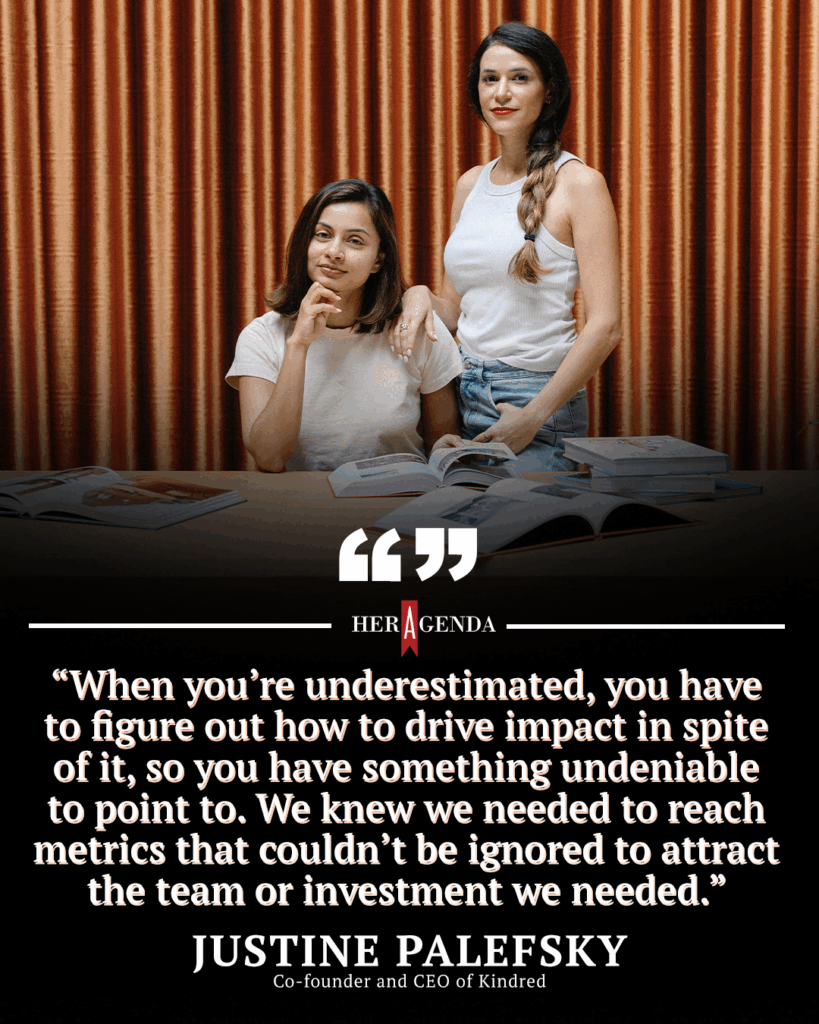
Her Agenda: How has a business like yours been able to scale? Can you share any tips?
Justine Palefsky: It’s hard. There’s always a ladder to scaling, and it can feel like everything is breaking at once. You have to prioritize and not get too worried about the breaking because it’s part of the process. The first step for us was finding an idea that really resonated. The second was finding a team that could give us the headspace to figure out how to scale. We hired an initial team and leaned on existing technology.
There’s so much you can do now with no-code tools—and even more with AI. We stitched things together using no-code because we didn’t have an engineering team at first. We had a Zapier bot connected to an Airtable backend, used Instagram to show listings, and automated emails to make it look like a more complete product. We essentially faked it until we made it and then, step by step, replaced those scrappy systems with scalable tools.
Hiring was really hard. That’s something most entrepreneurs experience, especially early on, when you don’t yet have credibility. You’re a young company competing with many others, saying, ‘We’re going to be the next big thing—trust me.’ And it’s even harder for women.
It can be more difficult to get people to bet on your potential and to join you early. One thing Tas and I learned through our careers in tech and other male-dominated industries is that women are often evaluated on results rather than potential. That makes it harder to get started.
The silver lining is that it teaches you early to show up with results. When you’re underestimated, you have to figure out how to drive impact in spite of it, so you have something undeniable to point to. We knew we needed to reach metrics that couldn’t be ignored to attract the team or investment we needed.
It’s harder, but it makes you tougher. And ultimately, it makes you a better entrepreneur and leader. It’s definitely tough being a woman in these industries, but I think the challenges make you sharper, more resilient, and more intentional about how you lead.
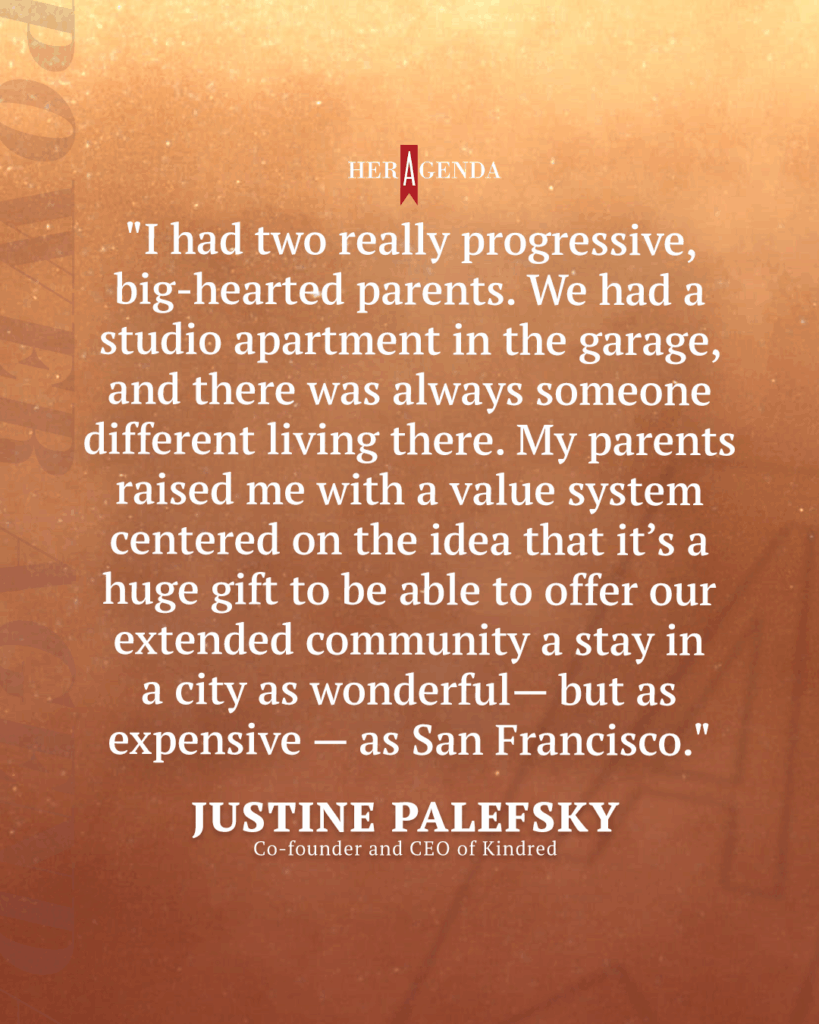
Her Agenda: How do you hope Kindred’s success will inspire the next generation of female founders in travel and tech?
Justine Palefsky: I really believe we have so many problems to solve in this world, and it’s a sad state if we’re only tapping into half of the world’s entrepreneurial brilliance. We need women to want to start companies and to feel empowered to do so, to tackle the challenges ahead of us as a human race.
For me, as I mentioned earlier, it was incredibly impactful to see a female CEO excelling in a male-dominated industry, wearing a long pink skirt, walking through a construction site, and absolutely crushing it. Seeing her gave me the confidence to take that leap myself.
I think one of the most important things we can do for others is to continue to exist and persist visibly and to build companies that mean something. That visibility matters. When women who are earlier in their entrepreneurial journey see someone a few steps ahead of them, they can think, ‘Maybe this is possible for me too.’
I truly believe that everyone has different superpowers, but there are certain strengths that are more commonly represented among women and female founders. Those superpowers can make us better leaders and help us solve problems that might be harder to address with a different perspective.
A great example is Kindred. The concept of home swapping has existed for a long time, but it struggled because it didn’t feel safe. And who is more attuned to questions of physical and emotional safety than women? The empathy that comes from understanding what it takes to make an experience approachable, easy, and safe gave us a unique advantage in designing this solution.
There are countless examples like that—instances where women bring a perspective or strength that’s absolutely essential to solving complex problems in the world. My hope is that women who are considering starting a company can recognize the value of those strengths.
What you may have been told is a liability [things like] your empathy, intuition, or communication style might actually be your edge. Those qualities are not weaknesses. They can be a tremendous advantage if we learn to see them that way.
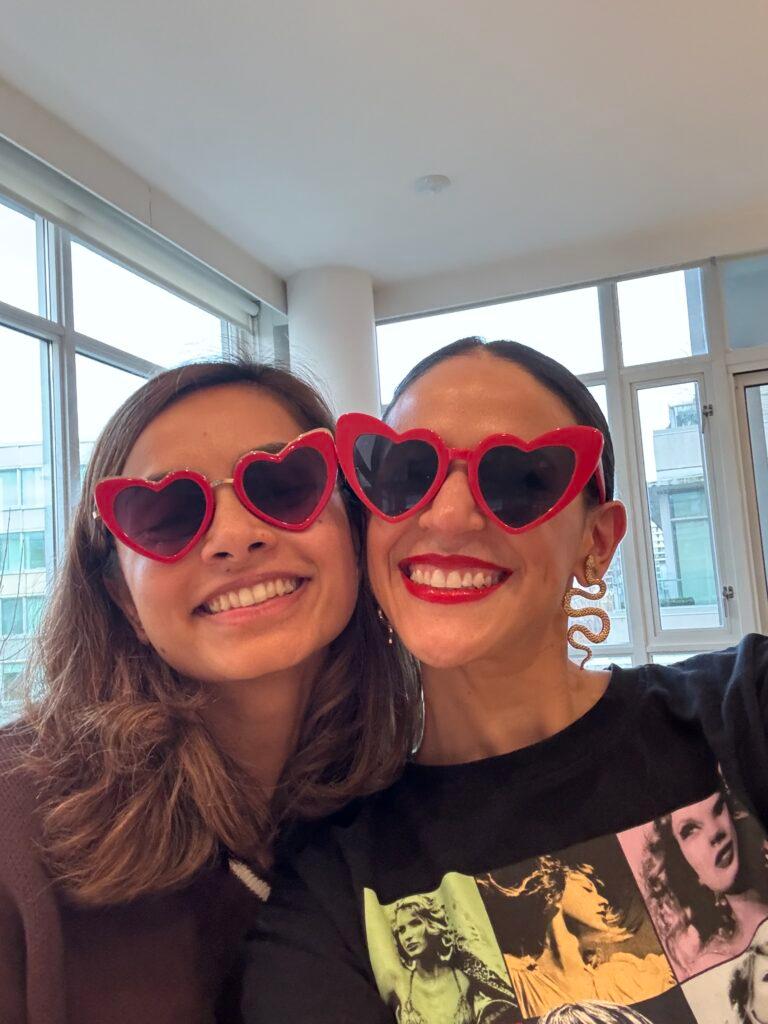
[Editor’s note: This feature has been edited for length and clarity.]



